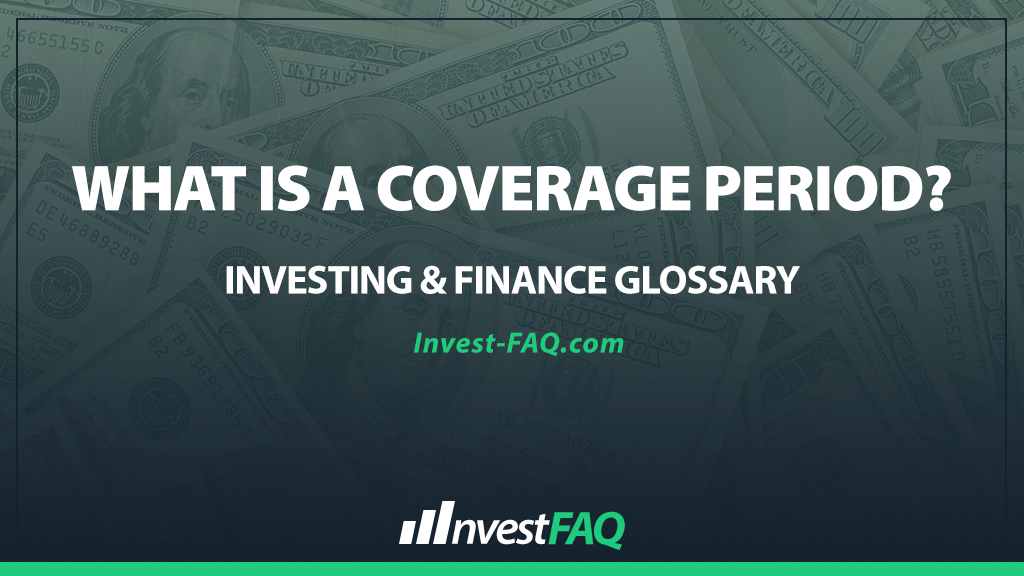
Coverage Period
Contents
A coverage period refers to the span of time during which an insurance policy or service agreement is active and provides protection or coverage to the insured party. It is a critical term in both insurance and service contracts, defining the exact duration for which the terms of the contract are enforceable and benefits are available.
In the business context, understanding and managing coverage periods is essential for risk management and financial planning. Businesses rely on various types of insurance policies, such as property, liability, and health insurance, to protect against potential losses and unforeseen events.
Similarly, service contracts with coverage periods ensure that businesses receive continuous support and maintenance for essential services and equipment. The start and end dates of these periods are crucial for ensuring that there are no gaps in coverage that could leave a business exposed to risks.
Example of a Coverage Period
Consider “XYZ Manufacturing,” which purchases a comprehensive equipment insurance policy covering damage, theft, and breakdown for their factory machinery. The policy has an annual coverage period, starting on January 1, 2023, and ending on December 31, 2023. During this time, any incidents falling within the policy’s terms will be covered by the insurer.
In this scenario, the coverage period of January 1, 2023, to December 31, 2023, signifies when XYZ Manufacturing’s equipment is insured against specified risks. Should any covered event occur within these dates, XYZ Manufacturing can file a claim with the insurer for compensation or repair services according to the policy’s terms.
The explicit definition of the coverage period helps XYZ Manufacturing manage its risk exposure effectively, ensuring that the company’s assets are protected for the specified timeframe. It also plays a vital role in the company’s financial planning, as the assurance of coverage impacts the allocation of resources for risk management and operational continuity.
Types and Uses in Business Scenarios
Coverage periods are applicable in various business scenarios, including:
Insurance Policies: Determining the active duration of protection against risks such as property damage, liability claims, and employee health issues.
Service Contracts: Ensuring continued support, maintenance, and updates for IT systems, machinery, and other critical business services.
Warranties: Defining the timeframe during which a product is guaranteed to function as described, with the manufacturer or seller responsible for repairs or replacements.
Significance for Investing & Finance
From an accounting perspective, the coverage period is significant for several reasons:
Expense Recognition: The cost of insurance premiums or service contracts is recognized over the coverage period, impacting financial statements and budgeting processes.
Risk Management: Adequately managing coverage periods ensures that businesses are protected against potential liabilities and losses, contributing to financial stability.
Compliance and Reporting: Accurately accounting for coverage periods is crucial for compliance with insurance regulations, financial reporting standards, and contract law.
In summary, the coverage period is a foundational concept in both insurance and service agreements, delineating the timeframe during which coverage is active.
For businesses, effectively managing these periods is essential for risk management, financial planning, and ensuring operational continuity.
FAQ
What happens if a claim is made just after the coverage period ends?
If a claim is made after the coverage period has ended, it typically won’t be covered by the insurance policy or service agreement, emphasizing the importance of renewing or extending coverage before expiration to avoid gaps in protection.
Can a business extend the coverage period of an existing insurance policy?
Yes, a business can often extend the coverage period of an existing insurance policy through renewal negotiations with the insurer, ensuring continuous protection beyond the original end date of the policy.
The length of the coverage period directly influences insurance premiums, with longer periods generally resulting in higher total premiums, though often with the benefit of locked-in rates that protect against increases during the coverage term.
Are there financial reporting implications for changes in the coverage period of a service contract?
Yes, changes in the coverage period of a service contract can affect financial reporting, particularly in terms of expense recognition and the allocation of costs over the duration of the contract, impacting both current and future financial periods.
